Is it Haram to Wear Nail Polish in Islam? | 2023
Unveiling the Religious Perspective on Nail Polish
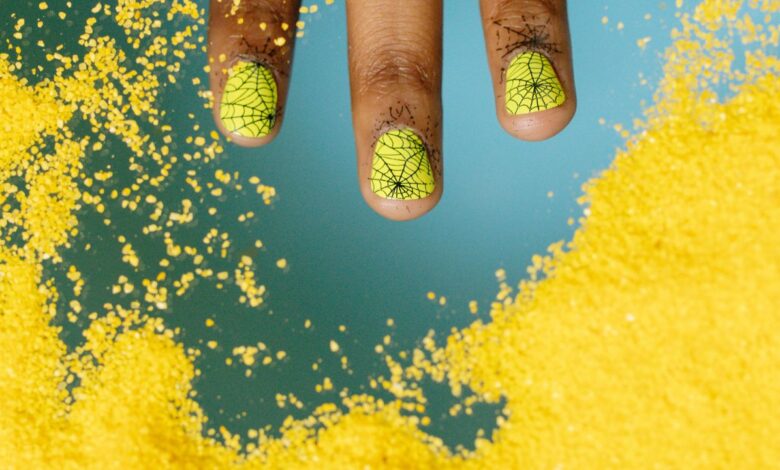
Is it Haram to Wear Nail Polish in Islam?
The answer to this question is not universally agreed upon within Islamic jurisprudence. Different scholars and schools of thought offer varying interpretations.
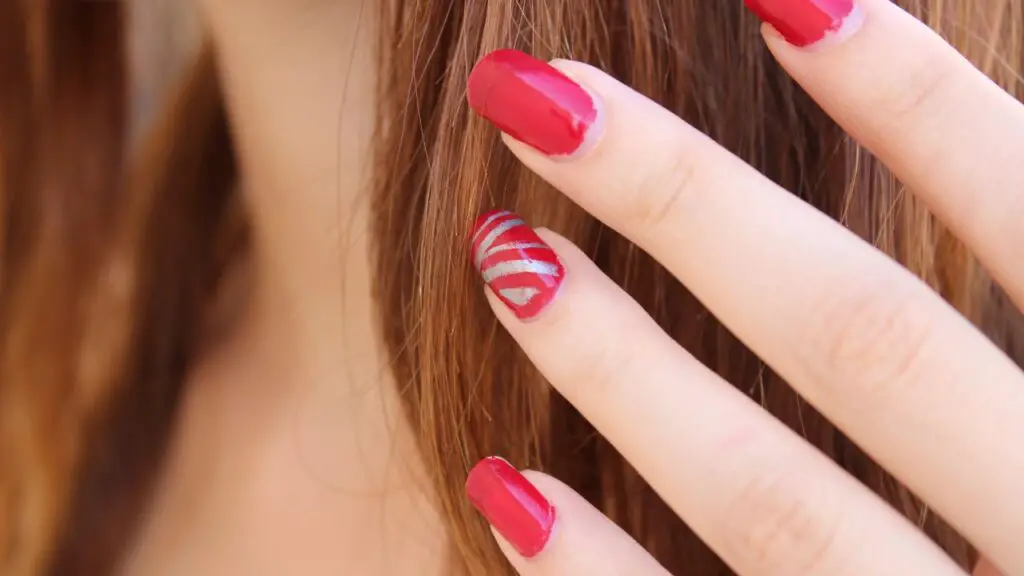
When Divorce is not valid in Islam?
What do Jews Believe Happens When You Die?
Can a Muslim Man Marry a Christian?
What are the Islamic marriage laws regarding the requirements?
Is it Haram to Kill a Rat? 2023
Can-a-Muslim-Man-Marry-a-Christian-1
Introduction
Nail polish has been a popular cosmetic product used by people around the world to enhance the appearance of their nails. However, in Islamic culture, the use of nail polish has sparked debates and discussions about its permissibility. While some argue that nail polish is a form of self-expression and personal grooming, others assert that it might be considered Haram (forbidden) due to its potential conflicts with Islamic teachings. This article aims to delve into the various perspectives on this topic, exploring both sides of the argument and shedding light on the broader context within Islamic jurisprudence.
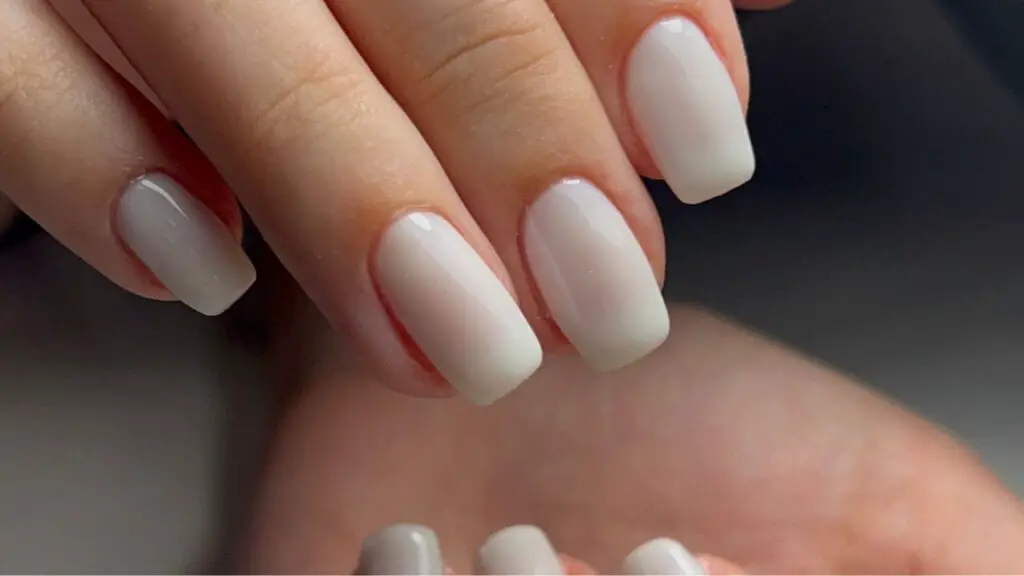
The Debate: Haram or Not?
The debate surrounding nail polish in Islam centers on the concept of “Haram,” which refers to actions or practices that are explicitly forbidden according to Islamic teachings. To understand whether wearing nail polish falls into this category, we need to examine the reasoning behind both sides of the argument.
Arguments Against Nail Polish Use:
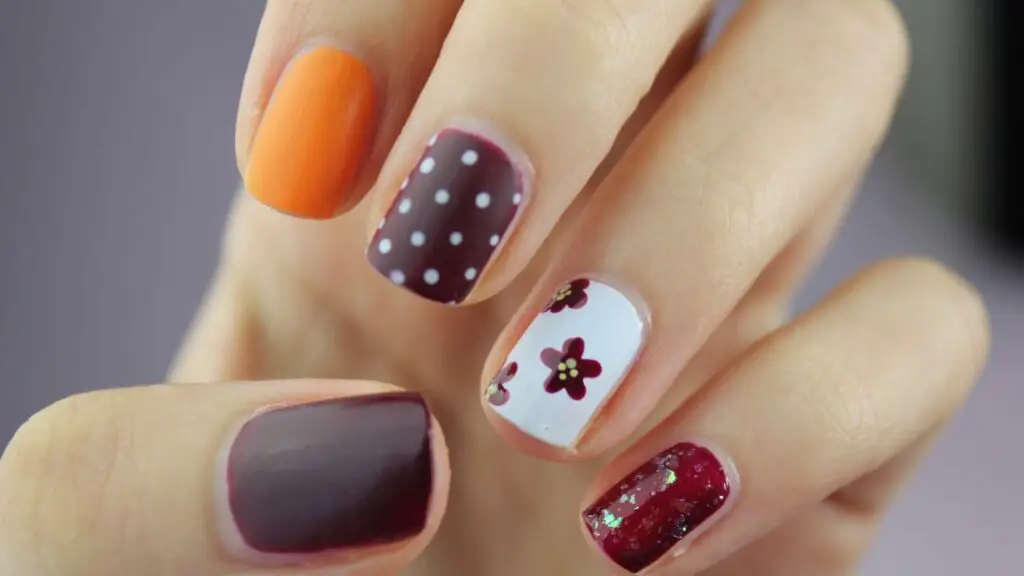
- Wudu (Ablution): One of the primary concerns raised by those who consider nail polish Haram is its potential interference with the performance of Wudu, the ritual ablution Muslims perform before prayers. Wudu requires water to come into contact with all parts of the body, including nails. Some scholars argue that nail polish acts as a barrier, preventing water from reaching the nails during Wudu, thus compromising the validity of the ablution.
- Imitating Non-Muslims: Another argument stems from the belief that imitating the customs and practices of non-Muslims could lead to the erosion of Islamic identity. Nail polish might be seen as imitating Western beauty trends, which some view as contrary to the principles of Islamic modesty and distinctiveness.
- Excessive Adornment: Islamic teachings emphasize modesty and discourage excessive adornment or vanity. Critics of nail polish usage argue that it might fall into the category of unnecessary beautification, diverting attention away from inner qualities and encouraging undue focus on physical appearance.
Arguments in Favor of Nail Polish Use:
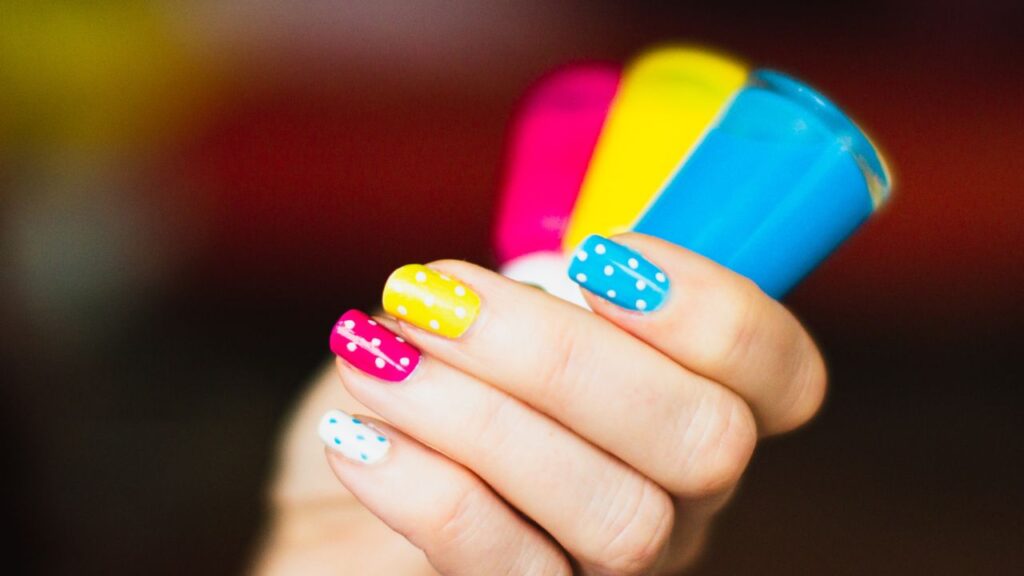
- Personal Grooming: Proponents of nail polish in Islam argue that it falls under the category of personal grooming, akin to other permissible practices like maintaining hygiene and dressing well. They contend that individuals can adorn themselves in a manner that is culturally appropriate while still upholding Islamic values.
- Lack of Explicit Prohibition: Unlike other practices that are explicitly prohibited in Islamic texts, such as gambling and alcohol consumption, nail polish is not explicitly mentioned in the Quran or Hadith. Supporters of its use contend that in the absence of clear prohibition, it can be considered permissible.
- Intent and Context: Some scholars argue that the permissibility of nail polish depends on the intent behind its use. If the intent is to engage in modest self-expression and adhere to cultural norms, rather than imitating non-Muslim practices, then it may be seen as acceptable.
Navigating the Gray Area: Moderation and Intention
Islamic jurisprudence often provides guidance on matters that are not explicitly addressed in the religious texts. In cases like nail polish usage, where the permissibility is not black and white, concepts such as moderation and intention become essential.
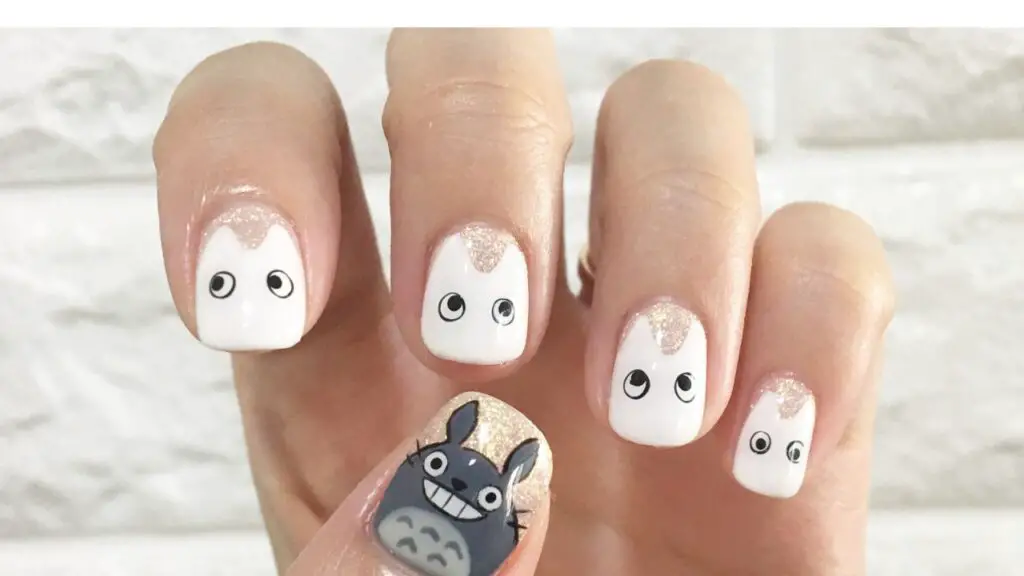
- Moderation: The principle of moderation is central to Islamic teachings. If individuals choose to wear nail polish, they are advised to do so in moderation, avoiding excessive adornment and ostentation that might conflict with the values of humility and modesty.
- Intention: Islamic ethics emphasize the importance of intention (niyyah) behind actions. If a Muslim woman chooses to wear nail polish with the intention of maintaining her appearance in a modest and culturally appropriate manner, rather than imitating non-Islamic practices, her intent might play a significant role in determining the permissibility of the action.
Conclusion
The debate over whether wearing nail polish is Haram in Islam highlights the complexity of interpreting Islamic teachings in the context of evolving cultural practices. While some scholars and individuals hold that nail polish can be seen as contradicting Islamic values, others argue that it can be permissible when approached with moderation and the right intentions. As with many matters in religion, the conclusion drawn may vary depending on individual interpretations and the guidance of knowledgeable scholars. In navigating this gray area, it’s crucial for Muslims to consider both the broader principles of Islamic ethics and their own personal intentions when deciding whether to use nail polish.
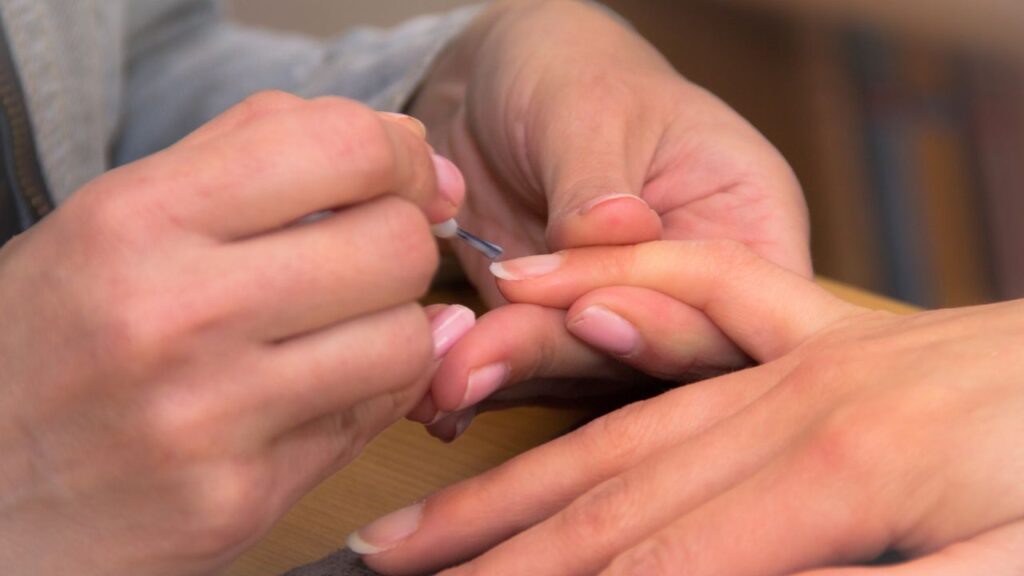
Faqs
Is it Haram to Wear Nail Polish in Islam?
The answer to this question is not universally agreed upon within Islamic jurisprudence. Different scholars and schools of thought offer varying interpretations.
Does wearing nail polish invalidate Wudu (ablution)?
This is a common concern. Some scholars argue that nail polish creates a barrier preventing water from reaching the nails during ablution, potentially invalidating it.
Is there any explicit mention of nail polish in Islamic texts?
Nail polish is not explicitly mentioned in the Quran or Hadith, which leads to differing opinions among scholars regarding its permissibility.
Can nail polish be considered a form of imitating non-Muslim practices?
Critics argue that nail polish could be perceived as imitating Western beauty trends, which might contradict Islamic principles of modesty and distinctiveness.
What role does intention play in wearing nail polish?
Intention (niyyah) is important in Islam. Some scholars suggest that if the intention behind wearing nail polish is modest self-expression rather than imitation, it might be permissible.
Conclusion
The debate over whether wearing nail polish is Haram in Islam highlights the complexity of interpreting Islamic teachings in the context of evolving cultural practices. While some scholars and individuals hold that nail polish can be seen as contradicting Islamic values, others argue that it can be permissible when approached with moderation and the right intentions. As with many matters in religion, the conclusion drawn may vary depending on individual interpretations and the guidance of knowledgeable scholars. In navigating this gray area, it’s crucial for Muslims to consider both the broader principles of Islamic ethics and their own personal intentions when deciding whether to use nail polish.
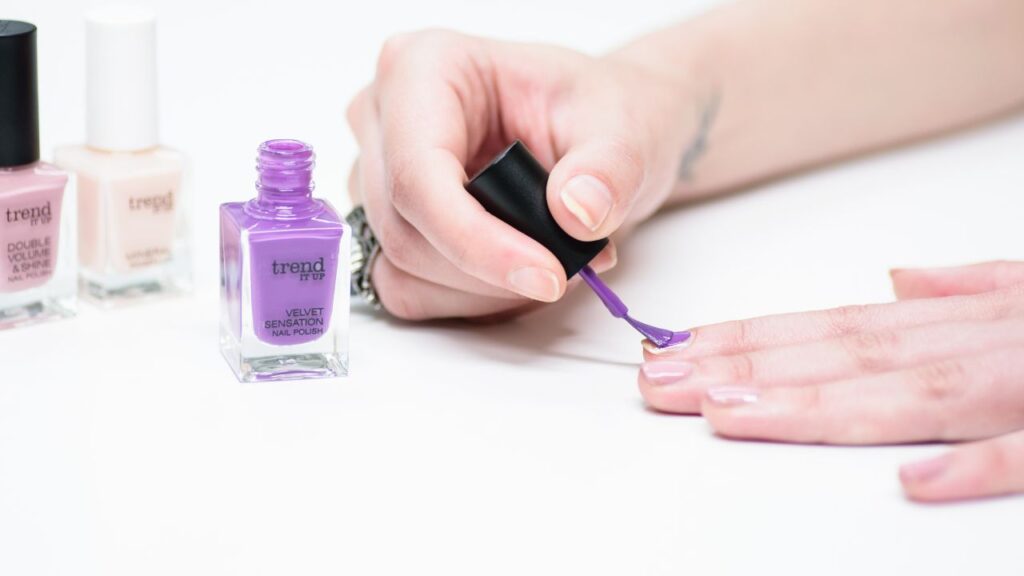
Faqs
Is nail polish usage gender-specific?
Both men and women may use nail polish, but it’s more commonly associated with women due to cultural norms.
Are there specific colors of nail polish that are considered more acceptable in Islam?
There’s no consensus on specific colors. Generally, colors should align with Islamic principles of modesty and not attract unnecessary attention.
Can nail polish be worn during prayer?
Some scholars argue that nail polish could hinder the proper performance of Wudu, affecting the validity of prayer.
Are there alternatives to traditional nail polish?
In some cases, breathable or water-permeable nail polishes are suggested as alternatives that may not hinder ablution.
What is the viewpoint of more liberal interpretations of Islam?
Some more liberal scholars argue that personal grooming, including wearing nail polish, is permissible as long as it’s done modestly and without excess.
How can I reconcile cultural practices with Islamic values?
Balancing cultural practices and Islamic values requires understanding the intent behind your actions and ensuring they align with your faith.
Is it possible to compromise between modern beauty trends and Islaic teachings?
Moderation is key. If nail polish is used in a manner that doesn’t contradict Islamic values, it might be considered acceptable.
Are there cultural variations in opinions on this matter?
Yes, opinions can vary based on cultural norms, local traditions, and religious outlooks.
What do scholars from different schools of thought say about nail polish?
Different schools of thought offer differing interpretations, leading to a range of opinions on the permissibility of nail polish.
how can I seek guidance on this issue?
If you’re uncertain, it’s advisable to consult knowledgeable religious scholars who can provide guidance based on your individual circumstances.





